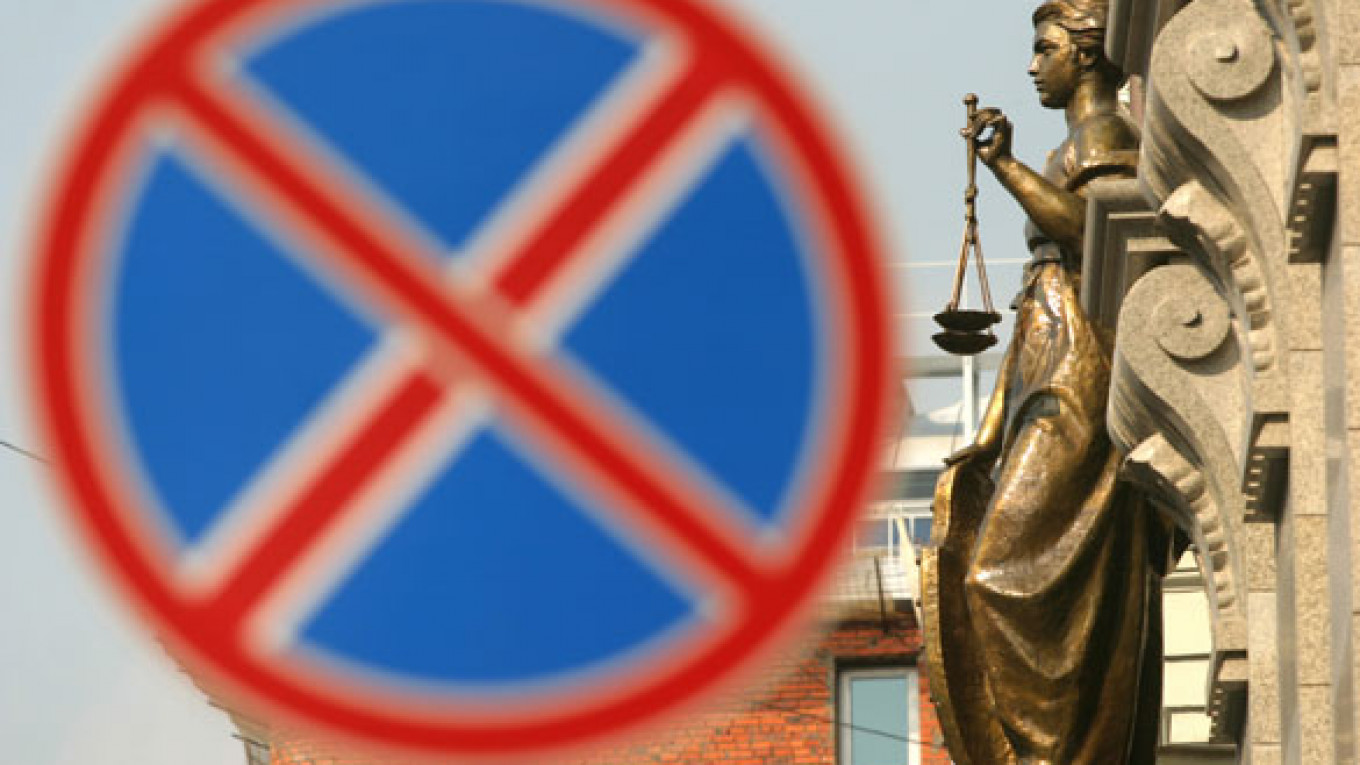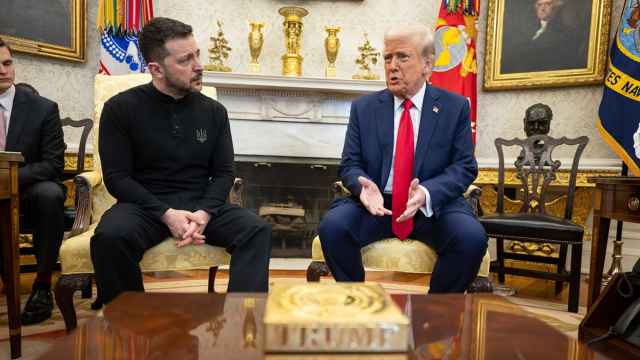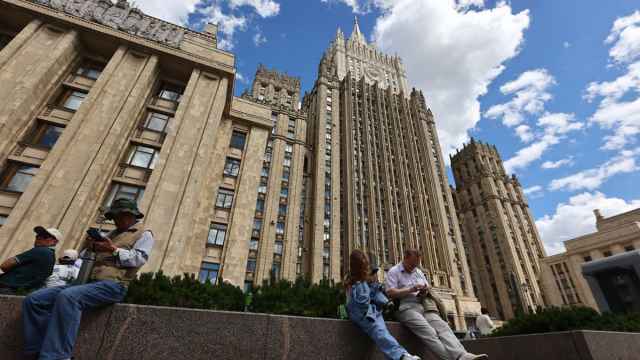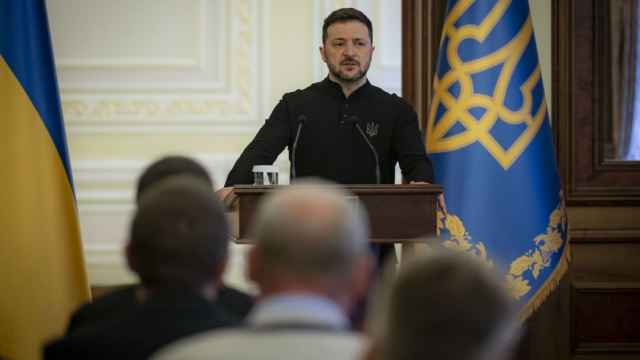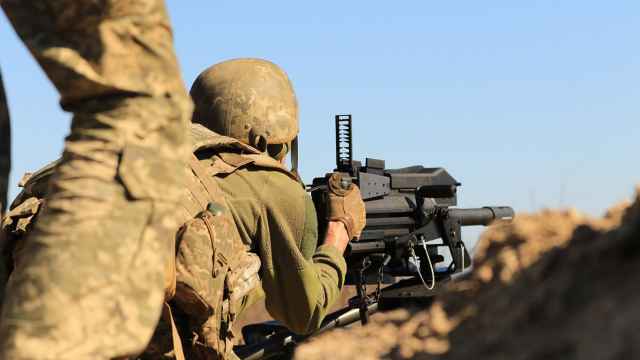Two St. Petersburg scientists have been arrested on spy charges that signal the resumption of criminal cases by a resurgent Federal Security Service against researchers accused of divulging state secrets.
Human rights activists accuse FSB officers of fabricating the latest case to show their superiors that they are working.
The arrests have received little media attention, all but eclipsed by a summer spy scandal that saw the United States swap 10 Russian agents for four Russians imprisoned on spy charges.
One of the scientists, Svyatoslav Bobyshev, now 57, was arrested at his apartment on March 16, Bobyshev's daughter, Yekaterina, told The Moscow Times.
The other scientist, Yevgeny Afanasyev, was also arrested on March 16, news reports said. He was 57 at the time of his arrest.
The duo, who worked at Baltic State Technical University and specialized in gas dynamics, the study of the motion of gases and its effects, are accused of passing sensitive information that could damage Russia's national security to unidentified Chinese citizens, Ekho Moskvy radio reported Sept. 14.
The FSB has made no statement about the arrests. A written request for comment sent last Wednesday was not answered by Tuesday.
Yekaterina Bobysheva said the charges against her father were groundless and stemmed from his work in China. She said she had no further information.
Afanasyev also has denied wrongdoing, news reports said.
If convicted, the professors face up to 20 years behind bars.
Bobyshev's lawyer, Dmitry Agranovsky, reached by telephone, declined to comment on the case, citing a nondisclosure agreement that he had been forced to signed with the FSB. He said, however, that Bobyshev and Afanasyev are jailed in Moscow's maximum-security Lefortovo prison and have no complaints about their conditions there.
Last Tuesday, the Lefortovsky District Court extended their pre-trial detention by another four months as FSB investigators prepare their case.
Baltic State Technical University has a cooperation agreement with China's Harbin Engineering University, which Bobyshev and Afanasyev have visited at least six times to deliver lectures together in recent years, said Yury Kruglov, chairman of the department where they work, according to an interview published in Ogonyok magazine on March 29. The two professors most recently visited China in May 2009, he said.
Every Russian university has staff who scrutinize articles written by professors and texts of their lectures for foreign conferences before they are published or presented in public.
Baltic State Technical University's former rector, Yury Savelyev, expressed doubt about the treason charges, saying lectures undergo triple checks: first by the department chairman, then by the university's security department, and finally by a special commission on export controls.
"Moreover, every professor goes through a special instruction procedure before going abroad," Savelyev told Ogonyok in March.
Kruglov, the department chairman, said the professors' research did not involve any information that could lead to their arrest.
Interestingly, Harbin Engineering University has featured in several spy cases. In 2003, Vladimir Shchurov, a Vladivostok acoustics researcher, was given a two-year suspended sentence on charges of passing classified technology to Harbin Engineering University.
One of the Russian agents arrested in the United States in June, Mikhail Semenko, studied at the university in 2003 and 2004.
Baltic State Technical University's current rector refused to comment on the March arrests.
A phone call to Afanasyev's lawyer, Boris Slobodin, after office hours on Tuesday was not answered.
China seems to be a country of choice for scientists eager to leak state secrets, at least according to FSB statements.
In 2007, three researchers and the director of the Central Research Institute for Machine Building, Igor Reshetin, were sentenced to prison terms from five to 11 1⁄2 years on charges of illegally selling weapon technologies to China.
In 2004, Krasnoyarsk physicist Valentin Danilov was sentenced to 14 years for passing secret information to China. His sentence was later reduced to 13 years.
In most FSB-led treason cases involving scientists, including Igor Sutyagin in 2004, Oskar Kaibyshev in 2005 and the brothers Oleg and Igor Minin in 2007, the suspects have maintained that they based their research on open, declassified data. These claims have been backed by other scientists, including members of the Russian Academy of Sciences, but the support has not always influenced court decisions.
Yury Ryzhov, an academician and member of the Public Committee to Protect Scientists, said the latest arrests were a continuation of "lawlessness" against scientists spearheaded by "corrupt organizations."
The head of the committee, Ernest Chyorny, called the case "murky" and said his organization could not take any action because of a lack of information about the case.
He said about 20 scientists have been targeted by the FSB on espionage and treason charges since the late 1990s, adding that he believed that the cases aimed only to boost the FSB's image.
Twenty-one people have been convicted of treason since 2002, according to Supreme Court statistics.
A Message from The Moscow Times:
Dear readers,
We are facing unprecedented challenges. Russia's Prosecutor General's Office has designated The Moscow Times as an "undesirable" organization, criminalizing our work and putting our staff at risk of prosecution. This follows our earlier unjust labeling as a "foreign agent."
These actions are direct attempts to silence independent journalism in Russia. The authorities claim our work "discredits the decisions of the Russian leadership." We see things differently: we strive to provide accurate, unbiased reporting on Russia.
We, the journalists of The Moscow Times, refuse to be silenced. But to continue our work, we need your help.
Your support, no matter how small, makes a world of difference. If you can, please support us monthly starting from just $2. It's quick to set up, and every contribution makes a significant impact.
By supporting The Moscow Times, you're defending open, independent journalism in the face of repression. Thank you for standing with us.
Remind me later.


